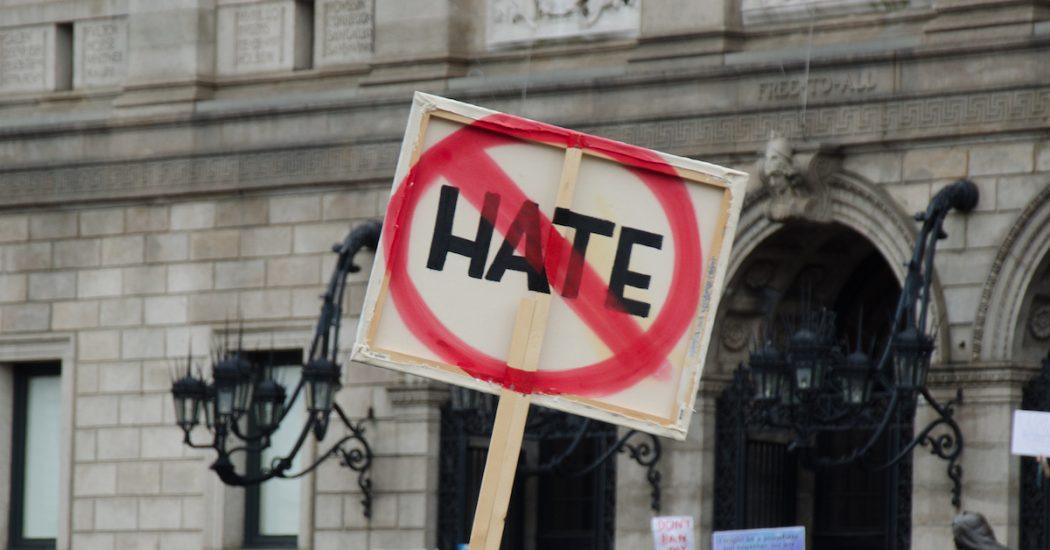It’s your third year and you’re well into your internal medicine clerkship, finally putting to practice all the skills Dr. Moffitt has taught you. Shortly into your shift, you’re paged for an admission from the Emergency Department. Excited to NEURS a patient for real, you and your senior resident head down to see the patient. The case is simple: a male in his mid-50s with a history of COPD who’s come down with pneumonia.
The patient and his family are nice enough, in good spirits despite the less-than-ideal situation. You and your resident decide to tackle the physical exam together. He starts at the feet while you begin to auscultate the lungs. As you move his gown aside, you notice an array of tattoos. You see “88” on his neck and think little of it, until you get to his chest. Silently staring back at you is a Swastika inked over his heart. You glance at your resident who is leaning over to check pedal pulses, a necklace slipping out from beneath his scrubs. Unmistakably, you see a Star of David now hanging in front of the resident’s hospital badge. Moments prior, you had cracked a joke with this patient. The patient’s wife had thanked your resident for his attentiveness and compassion. You feel your stomach bottom out, your mouth goes dry. Genuinely caring for patients has been easy, until now. How do you care for someone who has a core belief that means harm towards your team, or you?
Each of us took an oath when we put on our white coats. There are variations class to class, but the fundamental meaning is the same: we all swore to alleviate suffering, advocate for our patients, and champion the health of our communities. These are simple sentiments that are not simple in practice. Particularly when there are those in our communities who hold prejudicial beliefs so strongly that they would permanently adorn their skin with one of the most recognizable symbols of hate in history.
To some, this may seem to be an ethical dilemma that is no more than a simple thought experiment. However, this de-identified scenario is taken directly from my own internal medicine clerkship. In fact, after a career as an EMT I have an unwilling familiarity with the various tattoos that such people identify themselves with, ever since the first time I found myself in the back of an ambulance with a man who proudly proclaimed himself to be part of the “Texan Aryan Brotherhood”, eight years ago.
Again, each of us took an oath. The unfortunate reality is that if we are to uphold that oath, we have to face this dilemma: how do I give compassionate, quality care to a patient who would do me or my loved ones harm? For eight years I have struggled to come up with a satisfying answer.
Perhaps it would be easier not to know, to conveniently stay ignorant to the past of my patients. But ignorance is not a luxury afforded to those who do a thorough history and physical, which anyone who has gone through our doctoring course will naturally do. So now I am burdened with the knowledge that my patient holds a fundamentally wretched belief. Can I authentically care about this person like I would all my other patients?
The answer may be to separate the patient from the person. To focus on the problem, the diagnosis, the work-up. Hate, prejudice, and malice do not necessarily matter to a bacterial infection that could lead to respiratory compromise. But if I were to separate the problem from the person, I simply become a technician. Rather than a physician, I become a mechanic, working on a patient as though they were steel and rubber rather than flesh, blood, and soul.
So maybe the answer isn’t to separate anything from the patient. Maybe, to uphold my oath, I must separate myself: the person who marches in BLM protests cannot always be the same person who places his stethoscope over a Swastika. I will not be a champion for this man. I will not advocate his beliefs, or even tolerate them. But as a future physician, I will treat the human that is in front of me.
I can’t honestly say that this is a realistic expectation of myself. I can’t honestly say that I’ve given equally compassionate care to a man like the one we saw in the ED as I have to a young mother in pain from a sickle cell crisis. But I have given men like him medical care.
If we’re being completely honest: I don’t know the right answer. I do know that this is a situation that each of us will face, likely more than once. But I would never blame someone for recusing themselves from the care of a patient like this. I would never blame someone for trying to compartmentalize, attempting to care for a human with an illness, rather than a human who hates. The answer likely changes for each of us. But what doesn’t change is that we all will have to face this problem. So, when you’re the one in the ED, and you’re asked to admit a neo-Nazi: what will your answer be?
Chris Laube is a student in the class of 2023. He was an EMT prior to med school, where he met his wife, and attended most community colleges in the Phoenix area as well as ASU. When not on rotations, he enjoys spending time with his wife and kids, pretending to be an endurance athlete, and video games.

